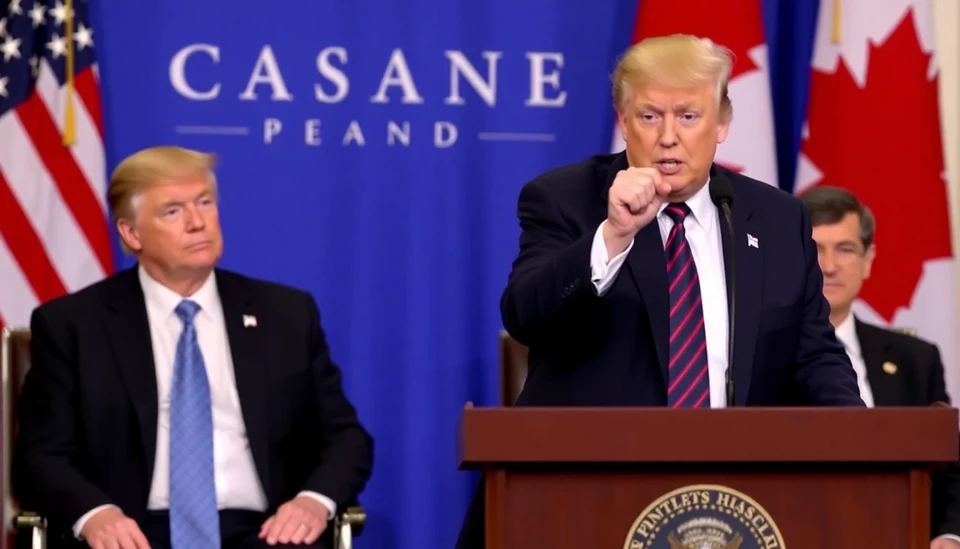
In a controversial statement that has sparked debate across political circles, former President Donald Trump expressed his willingness to use economic incentives to encourage Canada to join the United States as the 51st state. Speaking at a rally over the weekend, Trump outlined his vision for a unified North America, characterizing the idea as beneficial for both nations.
Trump's comments came during a discussion about national security and trade relations, where he asserted that integrating Canada into the U.S. could enhance economic prosperity and border security. “Imagine the possibilities if we made Canada our 51st state,” he roared to an enthusiastic audience. “We could unleash a mighty force economically, one that would benefit both nations immensely.”
The former president's statement was met with mixed reactions. Supporters heralded the idea as a bold move that could strengthen ties with one of America’s closest neighbors, while critics argued that such a notion undermines Canada’s sovereignty. Political analysts suggest that this audacious proposal could be part of Trump's ongoing campaign strategy as he aims to galvanize his base leading up to the upcoming Presidential election.
Further elaborating on his plan, Trump mentioned that economic incentives could include a combination of favorable trade agreements and increased investment in Canadian resources. He suggested that enticing Canada into a statehood arrangement could lead to job creation and increased tax revenue, potentially transforming the region’s economic landscape.
Opposition representatives wasted no time in denouncing the idea. Canadian Prime Minister Justin Trudeau, during a press briefing, made it clear that Canada's status as an independent nation is non-negotiable. “We appreciate our relationship with the United States, but we are proud of our sovereignty. We will not entertain any proposals that compromise that,” he stated emphatically.
As the narrative develops, Trump’s supporters in Congress show signs of rallying behind the idea, advocating for renewed dialogues on North American economic cooperation. Proponents argue that enhancing economic interdependence could lead to a more robust partnership, while opponents fear the proposals could ignite tensions regarding immigration, labor, and social issues.
Amid rising rhetoric surrounding U.S.-Canada relations, experts urge caution. They emphasize that any discussions about statehood should respect the complex historical and cultural dynamics that define the relationship between the two nations. Prioritizing mutual respect and understanding will be critical as both sides navigate this potentially contentious territory.
Looking ahead, it remains to be seen how this proposal will evolve within the political landscape. As Trump continues to champion the idea of Canadian statehood, observers are keen to monitor the reactions from voters on both sides of the border and the implications for future diplomatic interactions.
As this story unfolds, it is clear that Trump's remarks have reignited conversations about national identity, economic collaboration, and the future of North American relations, prompting critical questions about what it means to be part of a unified nation.
With a Presidential election on the horizon, Trump's statement could play a significant role in shaping the political dialogue in the coming months, especially regarding foreign relations and domestic policies.
#Trump #Canada #51stState #EconomicForce #NorthAmerica #CanadianSovereignty #PoliticalDebate #TradeRelations
Author: Laura Mitchell




